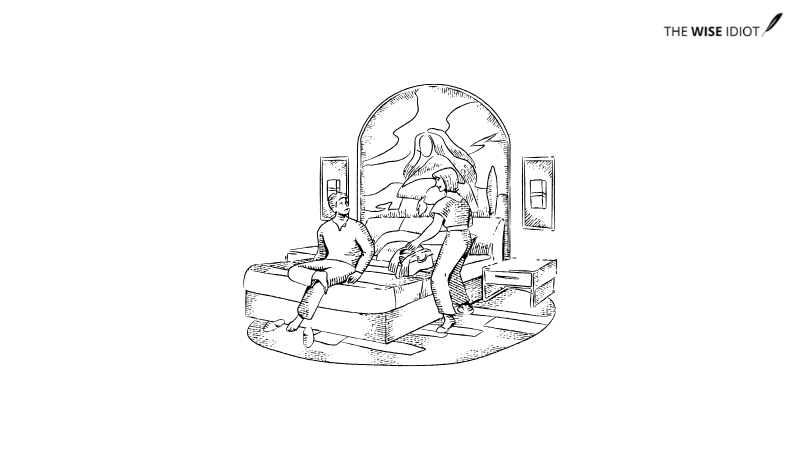Pranaam yatri,
On some days, you just want to stop everything, grab your phone and endlessly watch Instagram reels.
I call that seven days of the week.
One such Insta-binge introduced me to Lera Boroditsky’s TED talk: How language shapes the way we think.
The central theme was very simple.
The words we use make us think and act differently.
Our cognitive capability changes based on the language we use.
For eg. A tribe that doesn’t have the words ‘left’ and ‘right’ in their vocabulary ends up using terms like ‘My south-west foot is hurting.’
And as a result, their navigation skills are much better than any average human.
Amazing na?
The other example she gives is quite interesting, too.
In German, bridge is a feminine common noun.
While in Spanish, bridge is a masculine noun.
So while Germans tend to describe bridges as ‘beautiful’ or ‘elegant’, the Spanish use traditionally masculine adjectives like bridges are ‘big,’ ‘strong,’ and ‘large.’
This reminded me of a conversation that I had with my guru.
“Deep, you know English, right?”
“Yes gurudev, I do.”
“And you claim to have better command over the language than most people, right?”
“Yes, I think I’m better at the English language than most people.”
“Great, then give me the synonyms of these words: पुण्य, संसार, मोक्ष.”
I thought for a while, but couldn’t come up with an answer.
“Well, पाप is sin, so पुण्य should be…” I couldn’t complete the sentence. I finally gave up. “Sorry, I don’t know, Please tell me the answer.”
“I can’t give you the answer because such words – to the best of my knowledge – don’t exist in the English language.”
“But how is that possible?” I was bewildered. I ran a quick Google search, but the responses were nothing close to correct.”
“Let’s take a step back. What’s the purpose of a language?”
“To be able to communicate. To express what we think, feel or know.”
“And what about when we fall short of words? What do we do then?”
“We create new words,” I said in an it’s-so-obvious tone. “The world changes. Words like internet, cryptocurrency, biofuel didn’t exist a few decades ago.”
“Exactly. Then why doesn’t the English language have words like पुण्य, संसार, or मोक्ष?
For us, it’s difficult to get by for a month without using them. How could someone go on for centuries without inventing words for these phenomenons?
“But these are religious words. Their religion may not have the need…”
“Language is independent of religion. You can be a Punjabi-speaking Jain or an Oriya-speaking Vaishnav.
And secondly, they are not religious words. They are cultural words. There is no equivalent of pizza in Hindi – because pizza is not a common-occurring cultural element for the Hindi-speaking audience.
While English does have an equivalent for पाप, then why does the language not have a word for पुण्य? Is पुण्य not important for the English-speaking populace? Think about it.
Let’s look at other words: बिलोना and घी. Totally non-religious. Yet no mention of them in English. घी is referred to as ‘clarified butter’ – a distant synonym. But if we substitute the words, the essence of बिलोना – clockwise and counterclockwise churning, the nutrition preservation of the process, is wiped off.
Be careful, language doesn’t just create our identity, but also our reality.
पशुपालन is loosely translated to animal husbandry, which is limited to ‘cultivation and production of animals or plants.’ But पालन is more about caring.
धर्म is wrongly translated to religion. Religion is about god, worship, or faith. धर्म is totally independent of that.
“Makes sense. We end up saying the incorrect things.”
“That wouldn’t be such a problem. But the words influence your thoughts. So keep trying to use the right words to make sense. And feel the right things.”










